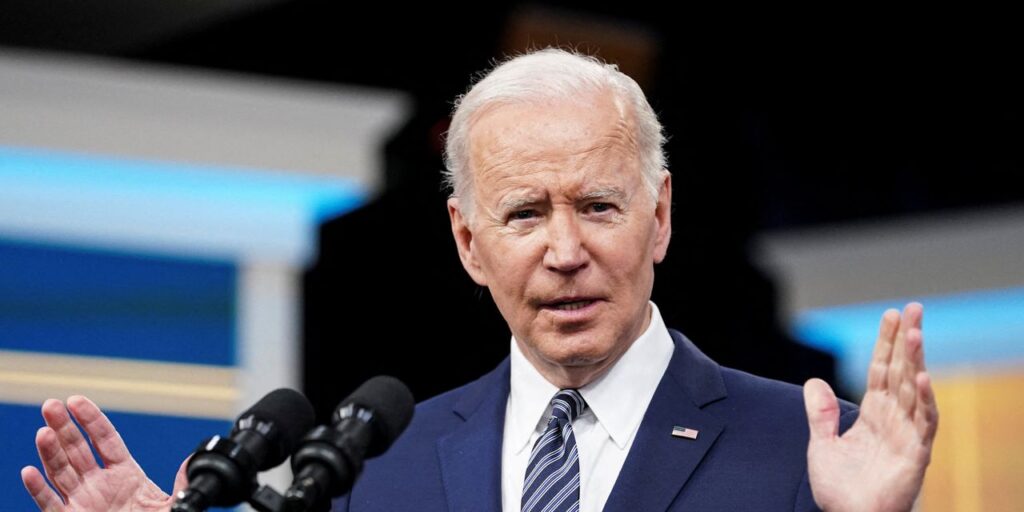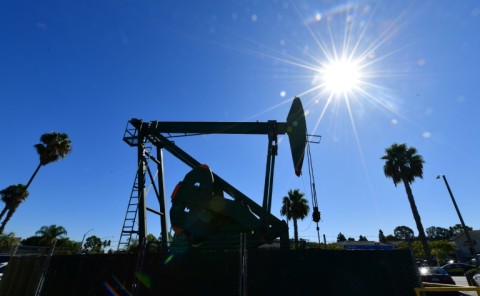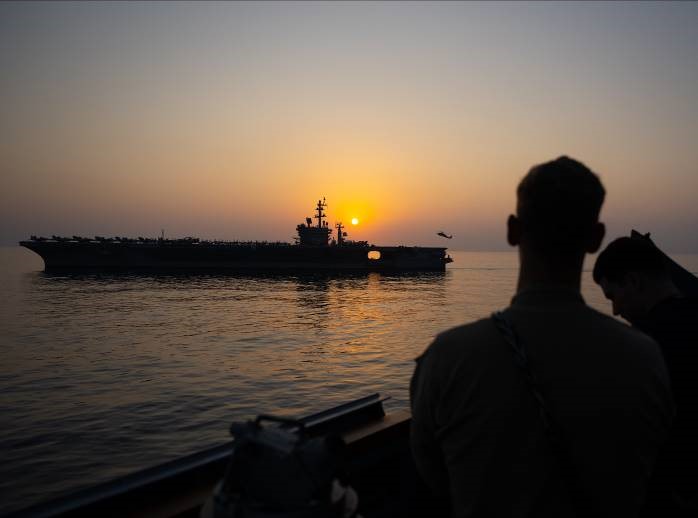Thursday . March 14, 2024
You are here Home Oil updates — crude rises on strong US fuel demand as supply concerns continue
Brent futures for May climbed 11 cents, or 0.13 percent, to $84.14 a barrel at 09:52 a.m. Saudi time, while April US West Texas Intermediate crude rose 10 cents, or 0.13 percent, to $79.82 per barrel. Shutterstock
Short Url
https://arab.news/c6tf6
Updated 14 March 2024
March 14, 2024 11:00
Oil updates — crude rises on strong US fuel demand as supply concerns continue
Updated 14 March 2024
REUTERS
March 14, 2024 11:00
SINGAPORE: Oil prices climbed in early trade on Thursday, supported by strong demand in the US after gasoline stocks hit a three month low and crude stockpiles dropped unexpectedly, with supply concerns remaining after Ukrainian attacks on Russian refineries, according to Reuters.
Brent futures for May climbed 11 cents, or 0.13 percent, to $84.14 a barrel at 09:52 a.m. Saudi time, while April US West Texas Intermediate crude rose 10 cents, or 0.13 percent, to $79.82 per barrel.
Both contracts had risen about 3 percent to a four-month high on Wednesday on the elevated US demand outlook and heightened geopolitical risk.
“Strong US products exports led gasoline stock to fall to a three-month low. Rising gasoline prices are supporting crack spread for refiners. Market also reacted to increasing geopolitical risks after a Ukrainian drone attacked a Russian refinery,” said ANZ analysts in a client note.
US gasoline inventories slid for a sixth straight week, falling by 5.7 million barrels to 234.1 million barrels, the Energy Information Administration said on Wednesday, triple the expectations for a 1.9 million-barrel draw.
Stocks of motor fuel at the US Gulf Coast fell to their lowest since November 2022, while finished motor gasoline supplied, a proxy for demand, edged up 30,000 barrels per day to more than 9 million bpd for the first time this year.
US crude oil stockpiles also fell unexpectedly as processing increased.
Supportive on the demand front, the US bought around 3.25 million barrels of oil for the country’s Strategic Petroleum Reserve for August delivery.
Supply-wise, Ukrainian drone strikes on Russian refining facilities continued for a second day on Wednesday, causing a fire at Rosneft’s biggest refinery in one of the most serious attacks against Russia’s energy sector in recent months.
“The recent push-up in oil prices has been attributed to a tighter supply-side factor, and given next week’s risk event (the outcome of the Fed’s FOMC meeting on 20 March) we may see some consolidation at the US$80.55/81.65 per barrel resistance zone for WTI crude,” senior market analyst at OANDA Kelvin Wong said.
In Ryazan, a drone attack caused a fire at Rosneft’s refinery. Two sources familiar with the situation told Reuters that the refinery had been forced to shut down two primary oil refining units.
Related
Closing Bell: Saudi main index edges up with trading turnover of $3.89bn
Updated 5 sec ago
March 14, 2024 16:25
Closing Bell: Saudi main index edges up with trading turnover of $3.89bn
Updated 5 sec ago
Arab News
March 14, 2024 16:25
RIYADH: Saudi Arabia’s Tadawul All Share Index rose to gain 5.38 points, or 0.04 percent, to close Thursday’s trading session at 12,728.53.
The total trading turnover of the benchmark index was SR14.36 billion ($3.89 billion) as 126 stocks advanced, while 93 retreated.
The Kingdom’s parallel market, Nomu, rose 308.5 points, or 1.16 percent, to close at 26,989.40. This comes as 43 stocks advanced, while as many as 25 retreated.
Meanwhile, the MSCI Tadawul Index also rose 0.88 points, or 0.05 percent, to close at 1,606.22.
The best-performing stock of the day was Wafrah for Industry and Development Co. The company’s share price surged 9.97 percent to SR49.10.
Other top performers included Saudi Research and Media Group as well as Saudi Tadawul Group Holding Co.
The worst performer was Morabaha Marina Financing Co. whose share price dropped by 4.75 percent to SR11.62.
On the announcements front, Yanbu Cement Co. announced its annual consolidated financial results for the period ending Dec.31.
According to a Tadawul statement, the entity’s net profit hit SR119.92 million, down 44.33 percent as compared to 2022 figures.
The drop is mainly attributed to a decrease in sales revenue, an increase in financing expenses, despite a surge in other income.
Moreover, Wataniya Insurance Co. also announced its annual financial results for 2023.
A bourse filing revealed that the firm’s net profit reached SR84.6 million in the period ending Dec.31, up from a net loss of SR27.6 million in the same period a year earlier.
This rise in profits was primarily owed to an increase in revenues, a surge in the insurance service results, and a rise in investment return.
Dallah Healthcare Co. also announced its annual financial results for the period ending Dec.31.
According to a Tadawul statement, the company’s net profit stood at SR360.1 million during 2023, reflecting 31.21 percent jump when compared to 2022 figures.
The climb in net profits is mainly linked to improved gross profits, enhanced performance of the of associates firms, and a special provision for zakat.
Meanwhile, the Capital Market Authority board issued its resolution approving Saudi Manpower Solutions Co.’s application for the registration and the offering of 120 million shares, representing 30 percent of the firm’s share capital.
Related
Saudi Venture Capital invests $30m in Olive Rock Partners Fund I
Updated 14 March 2024
March 14, 2024 15:07
Saudi Venture Capital invests $30m in Olive Rock Partners Fund I
Updated 14 March 2024
Arab News
March 14, 2024 15:07
RIYADH: Regional startup funding is set to see a significant boost as Saudi Venture Capital announced a $30 million investment in Olive Rock Partners Fund I.
The investment aligns with SVC’s strategy to develop and sustain financing for startups and small and medium-sized enterprises in strategic sectors.
Focused on mid-market buyouts that are demographically driven, geographically advantaged and technologically enabled, Olive Rock Partners Fund I is a regional private equity fund aiming to boost the ecosystem.
The agreement was signed by Nabeel Koshak, CEO and board member of SVC, and Muhannad Qubbaj, founding partner of Olive Rock Partners, in the presence of key officials from both organizations.
“The investment in Olive Rock Partners Fund I is part of SVC’s Investment in Funds Program, which is a continuation of the company’s series of investments and an implementation of its strategy related to developing and sustaining financing for startups and SMEs, especially in strategic sectors,” Koshak said.
For his part, Qubbaj expressed gratitude for SVC’s trust and highlighted the partnership’s potential to fuel growth in the SME space and enhance the direct investment landscape in Saudi Arabia.
Established in 2018 as a subsidiary of the SME Bank, part of the National Development Fund, SVC is committed to stimulating and sustaining financing for startups and new enterprises from pre-seed to pre-initial public offering stages through investments in funds and direct investments.
In October 2023, SVC invested $10 million in the Ruya Private Capital I LP fund, managed by Ruya Partners.
Established in 2020, Ruya Partners is a dedicated private credit firm offering financial solutions to the private sector in emerging markets. The fund aims to deliver capital in the form of private debt to SMEs, focusing on mid-market entities and including later-stage venture-backed companies within Saudi Arabia and the broader region.
As part of its commitment to minimize financing gaps for startups, SVC also invested SR112.5 million ($29.9 million) in Saudi Arabia’s IMPACT46 Fund III in October 2023.
The move was designed to empower late-stage companies in the region by investing in growth and pre-IPO phases.
Related
Omani authority injects $63.9m into 244 SMEs across different sectors
Updated 14 March 2024
March 14, 2024 15:06
Omani authority injects $63.9m into 244 SMEs across different sectors
Updated 14 March 2024
Arab News
March 14, 2024 15:06
RIYADH: Oman’s small and medium enterprises received a funding boost, with the authority tasked with their development lending over 24.6 million Omani rials ($63.9 million) as of February.
The total number of projects financed by the country’s Small and Medium Enterprises Development Authority reached 224 as of the end of last month, the Oman News Agency reported.
The sectors that came at the top of the funded projects were industrial, commercial and service, with a total of 161 projects financed. A total of 44 contract projects followed closely.
The contract financing program focuses on financing contracts, both tenders or purchases, so that the funding decision is issued based on the work award letter.
Capital financing ranked third, with a total of 29 projects. The capital financing program specializes in covering the daily needs of the organization’s operational expenses, such as the costs of purchasing raw materials, semi-manufactured goods, merchandise, warehouses, spare parts, salaries and wages and transportation expense.
The authority wants to ensure the continuity of the production process from purchasing raw materials to product sale.
The Muscat governorate provided the most funding, with the body financing 108 projects with a value exceeding 10 million rials.
Next was the Al-Batinah North, which financed 31 projects with a value exceeding 3 million rials, and then the Al-Batinah South governorate, which financed 19 projects with a total value exceeding 1 million rials.
Ninteen projects were also funded in the Dhofar and 15 projects in the Al-Sharaqiyah South.
Similarly, 18 projects received funding in the Al-Dhahirah while 13 projects were funded in Al-Dakhiliyah.
The funded projects were distributed among various financing programs offered by the authority, which include the “In-Country Value Program,” the “Industrial Projects Financing Program,” and the “Working Capital Financing Program.”
Middle East CEOs optimistic about economic growth, AI integration: study
Updated 14 March 2024
March 14, 2024 14:26
Middle East CEOs optimistic about economic growth, AI integration: study
Updated 14 March 2024
ARAB NEWS
March 14, 2024 14:26
RIYADH: Global economic volatility alongside emerging technologies has not deterred business confidence among CEOs in the Middle East, a recent report revealed.
The CEO Global Insights Study for 2024 by Arthur D. Little, survey almost with 300 CEOs from across the world, and discovered positivity from leaders in the region.
The report revealed that 61 percent of CEOs in the Middle East are optimistic about economic growth in the next three to five years, a notable jump from just 13 percent last year.
Despite the ups and downs in the global economy, 37 percent of the CEOs surveyed still see a steady future, reflecting their trust in the region’s economic strength.
With just 2 percent expecting a decline, there is a shared belief that the Middle East is on the rise after overcoming recent obstacles.
In the field of emerging technologies, a commitment to integrating artificial intelligence across business operations is seen as “crucial to growth and echoes globally”, with 54 percent of Middle East CEOs expressing a strategic vision toward a holistic, companywide AI deployment.
On that note, 96 percent of global CEOs stated that they have already deployed AI in their institutions in some capacity.
Regionally, 31 percent confirmed the implementation of AI strategies across several departments, with 13 percent already realizing “a compelling, enterprise-wide AI strategy.”
According to the report, the leaders understand that in order to harness the abilities of AI, they must also focus on human capability and reskilling.
Some 59 percent of the CEOs who undertook the survey said that they “have either a strong or very strong need to reskill their workforces to meet changing requirements.”
This trend is particularly pressing in sectors such as manufacturing, with a 63 percent increase in the need to reskill.
“In the current times of business and geopolitical shifts, it is inspiring to witness the optimism among the Middle East’s CEOs for what lies ahead,” said Thomas Kuruvilla, managing partner at Arthur D. Little Middle East, adding: “The ADL 2024 CEO Insights Study reveals that despite acknowledging the continuing unpredictability, these leaders are confident that with resilient business models, strategic clarity, the embrace of AI, and a focus on upskilling their teams, their companies and markets are poised for enduring growth and will actively contribute to the region’s prosperous future.”
He continued: “AI is more than a buzzword in the Middle East; it’s a strategic imperative that’s receiving boardroom attention. Our CEOs are not just adopting AI but are strategically deploying it to unlock a new frontier of possibilities.”
Related
Saudi Arabia secures $13bn for tourism expansion, eyes $85bn revenue boost: minister
Updated 59 min 14 sec ago
March 14, 2024 14:21
Saudi Arabia secures $13bn for tourism expansion, eyes $85bn revenue boost: minister
Updated 59 min 14 sec ago
ARAB NEWS
March 14, 2024 14:21
RIYADH: Saudi Arabia has secured $13 billion in private sector investments for its tourism industry, aiming to distribute the costs involved in becoming a top destination, a minister said.
According to Princess Haifa Al-Saud, the Kingdom’s vice minister for tourism, the investments are expected to increase the number of hotel rooms by 150,000 to 200,000 within the next two years.
Saudi Arabia aims to raise tourism revenue to $85 billion this year, up from approximately $66 billion in 2023, Princess Haifa said in an interview with Bloomberg.
“The current GDP (gross domestic product) contribution is 4.5 percent and we aim to get that to 10 percent by 2030. We started from 3.2 percent when we opened up for tourism,” she said.
Saudi Arabia aims to attract 150 million tourists annually by 2030 as part of Crown Prince Mohammed bin Salman’s economic diversification strategy, which involves shifting revenue streams from oil to sports and technology.
The Kingdom is investing in projects such as Qiddiya and industries including football to attract foreign visitors. It is also the only bidder for the 2034 World Cup.
In 2023, Saudi Arabia welcomed 100 million tourists, the majority of whom were locals. Around 27 million international visitors arrived, many traveling for religious or business reasons.
Due to ongoing building projects, leisure excursions are estimated to account for a small percentage of total travel.
The government plans to recruit $80 billion in private investment in tourism by 2030 and spend $800 billion on the industry in the next decade.
In October 2023, Saudi Arabia’s hospitality sector revised its 2030 target to 150 million visitors, up from the initial 100 million, according to the minister of tourism.
“I think we will close this year with about 100 million (visitors) and almost 6 percent of contribution to gross domestic product, that’s why … (Crown Prince Mohammed bin Salman) instructed us to revise up our targets to 150 (million visitors),” Al-Khateeb said at the time.
The minister elaborated that out of this new target, an estimated 75 million travelers are expected to be international, with the remaining 75 million domestic.
Related
Latest updates
Recommended
https://www.arabnews.com/node/2476581/business-economy




